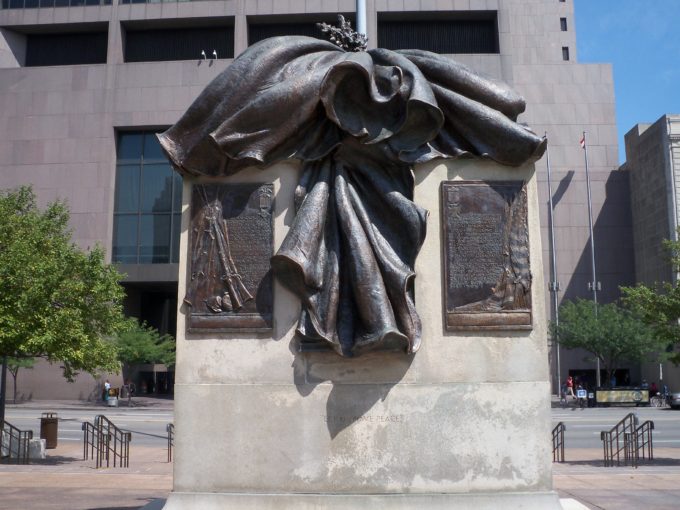
Monday, 2 December 2019
For we have spent enough of our past lifetime in doing the will of the Gentiles—when we walked in lewdness, lusts, drunkenness, revelries, drinking parties, and abominable idolatries. 1 Peter 4:3
Peter now expands on his previous thought concerning no longer living for the lusts of the flesh, and instead living for the will of God. There is a difference between some Greek manuscripts which say either “you” or “we.” The NKJV is based on the manuscript which says “we,” as if Peter is including himself. Either way, he notes what the state was in the past by saying, “For we have spent enough of our past lifetime in doing the will of the Gentiles.”
The word “will” here is a preset and fully resolved plan. It identifies the will or intent of someone. The will of the Gentiles is how they lived their lives. It is how anyone without law would act, and yet the law did not even change Israel’s conduct.
In other words, and Peter is writing to a Jewish audience, their behavior was that of following after the nations. The law was given to keep Israel from such things, but Israel failed to pay heed. Instead, they lived as immorally as the Gentiles did. But that time is now past for those who have come to Christ. Instead of such a life, they are called to holiness and to living for God.
To ensure that they understood their previous character, and what it involved, he next gives a list of those things they participated in. In doing so, he uses the standard way of identifying how one lives by saying, “when we walked.” It is a common expression signifying daily conduct. As one walks, their carriage is identifiable. Even from a long distance off, a person can be identified simply by the way he walks. And so, to say that one walks in a certain way identifies their moral character.
Peter next lists the walk of his fellow Jewish believers, showing them that their conduct under the law did not match what the law demanded of them. First, he mentions, “in lewdness.” Strong’s identifies the meaning as “outrageous conduct, conduct showing to public decency, a wanton violence.”
Next, he says, “lusts.” The word signifies an inordinate desire for something. It is an attitude where one is highly focused on something, but it can – at times – identify something in a positive light, such as earnestly desiring that which is good (see Luke 22:15).
Peter then mentions “drunkenness.” This is the only time the word is seen in Scripture. It signifies excessive drinking or debauchery. It does not speak of someone who moderately drinks alcohol, but rather someone who abuses it.
Next, he says, “revelries.” This signifies drunken feasts which included sexual immorality, carousing and wild partying, and etc. After this, he adds in “drinking parties.” It is another word unique in Scripture which signifies drinking and carousing.
Peter then finishes with “and abominable idolatries.” The word “abominable” signifies that which is criminal or lawless. Acts 10:28 translates it as “unlawful.” It is that which is unacceptable. The word “idolatries” is used by Paul three times, and this is now its final use in Scripture. It signifies idol service or image worship.
Peter has said that all of these were practiced by his audience. It does not necessarily mean each had participated in all of them. Rather, as a general rule, his Jewish audience followed the same despicable practices that the Gentiles had followed.
Peter may have been thinking of the words of Jesus which are recorded in Mark 7 –
“For from within, out of the heart of men, proceed evil thoughts, adulteries, fornications, murders, 22 thefts, covetousness, wickedness, deceit, lewdness, an evil eye, blasphemy, pride, foolishness. 23 All these evil things come from within and defile a man.” Mark 7:21-23
Jesus spoke of the source of such things, thus showing that a change had to take place in a person in order for his heart to be converted. It is Christ who makes that possible. The law is insufficient to do so, and – as Paul notes – it highlights these things in man.
Life application: In context, this is referring to why we should live holy lives, because Christ suffered to put sin to death in us. Because He did, we should be willing to suffer as well. The reason is that all people – Jew and Gentile – have participated in the very things which led to His cross.
Even when we were living in this fashion, Christ was willing to give His own life to buy us back from there.
Anything which brings about sin also necessitates judgment. The cross is sufficient to cover all of it though. Because it is, and because of God’s great mercy which is displayed in it, we can now see why Peter calls us to accept suffering as well, and to also live in the will of God. These things should stem naturally from a grateful heart. Those who accept Jesus as Lord and don’t have this attitude demonstrate an ingratitude that will be regretted throughout the ages.
Such is the case of those being addressed in 1 Corinthians. In that epistle, Paul writes to a congregation full of confused, self-serving, and argumentative people. Throughout the letter, Paul directs them to Jesus and His work. Likewise, Peter directs us to Him as well. One day – be it soon or down the road a bit – we will face Jesus. At that time, how many of us will be ashamed at the lack of attention we paid to His calling? Let us strive now to live for Him!
Lord God, grant us the will, desire, and ability to serve You in holiness. May we even be willing to suffer for Your sake if that is what is necessary. Whatever will bring You the most honor, may that be the desire of our hearts. We truly do wish to glorify You, O Lord. Amen.




